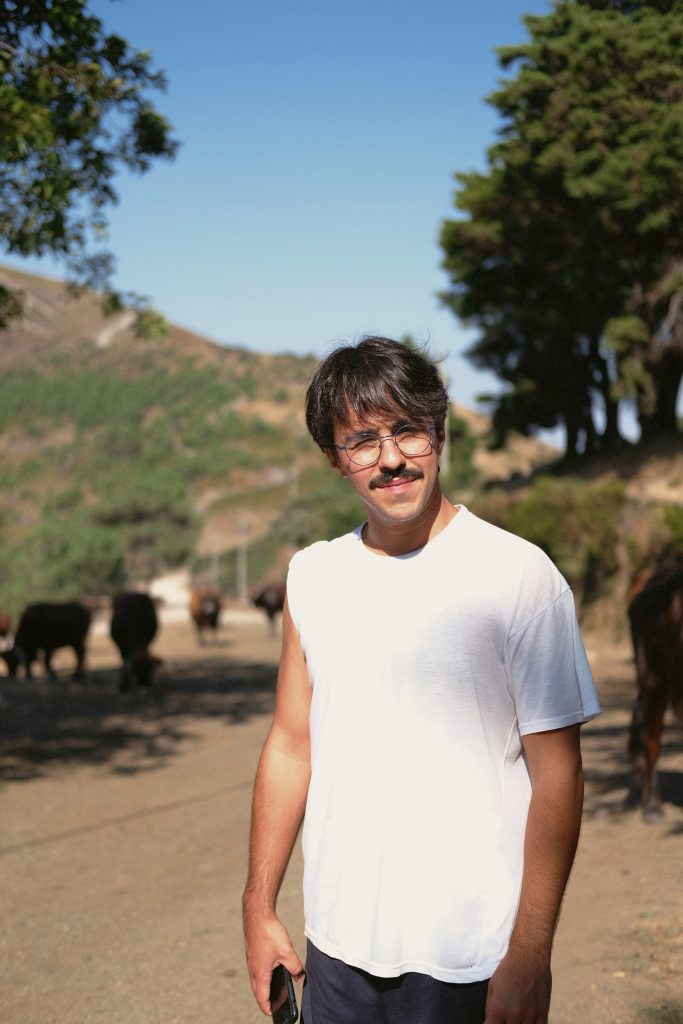
“My adventure in Sicily began in a beautiful hot storm, with Palermo at 30 degrees at night, unbearable sweat, and a world with a mask on my chin.
I would later come to know that the Guarneri Mountains what would be home to many discoveries in the 3 months to come.
Sicily, a mere 3 kilometres from Italy, has a slightly different sense of community than ours, a result – I assume – of the hardships they have always endured. One of the beauties of this island is the coexistence of cultures in such a wonderful space: Phoenicians, Greeks, Romans, Arabs, Normans and Spaniards succeeded and cohabited, sometimes. But this coexistence has also brought great penalties for its inhabitants, who have always lived in this dystopia of the most beautiful place in the world, but where there will never be peace.
I saw a Sicily heavily penalised by mafia legacies and impotent governments that are reflected in an astronomical desertification of the territory and an abandonment of the land in search of a well-paid job in Northern Italy. I have seen the constant confrontation between a territory of very peculiar natural beauty and a dead and forgotten soil. I have seen farming that is industrial and harmful to everyone. I saw the consequences of global warming and climate change, with my very dear Giulio, a shepherd who lived with us, telling me in the first person that “in May, when I was little, the rain was fine, the grass was tender and the cycles were renewed. Yesterday it was 30 degrees and today it is cold”.
My voluntary period was spent mostly in the Sierra Guarneri, a place rediscovered in the 1980s by a group of friends who later founded Palma Nana, the association that manages this space. It is located very close to Cefalú, in the Parco delle Madonie, a very characteristic nature reserve.
We developed a garden for butterflies and regularly managed the vegetable garden. With this association I also visited other projects, in different places. All of them with the aim of making the world a better place: through vermicomposting, organic farming and sustainable tourism. I saw that in a desolate territory, many people (and at great personal cost) were making a change. I discovered that the big change is to become producers and not just consumers.
All this gave me a huge urge to do something for the city I love: Amarante. As a result, galvanized and fueled by this immense force provoked (I presume, to everyone) by a volunteer project, I told Miguel Pinto, from Casa da Juventude de Amarante, all these ideas of mine. He pressed the right button and galvanized me even more, suggesting me the OPJ (Orçamento Participativo Jovem – Youth Participatory Budget) as a first instrument for change. I gathered a nice group of friends, we discussed ideas and came to the conclusion that an Urban Garden would be the best example for the change of mentalities: even in an urbanized space, becoming producers of our own food. I got in touch with the Earthworm Revolution and the Bem da Terra association and together we architected a structure for this.
There was still a lot of energy accumulated, so we started the strategy that would later result in the victory of the PBJ. We recorded 3 episodes of a series on natural agriculture, to give the community the opportunity to learn, still in theory. All this is the fruit of an internal force, of the group, which despite not being academically related to the topic of the Environment, nurtures a great desire to make everyone’s life more sustainable.
But more than anything, the trigger was my volunteering experience in Sicily.
This is the strength of Amarante Youth House: making change by collecting experiences and provoking these powerful triggers in society.” Sérgio

Leave a Reply